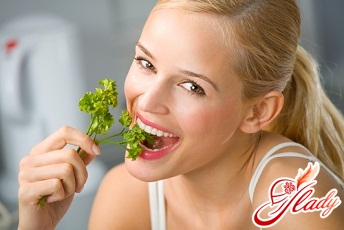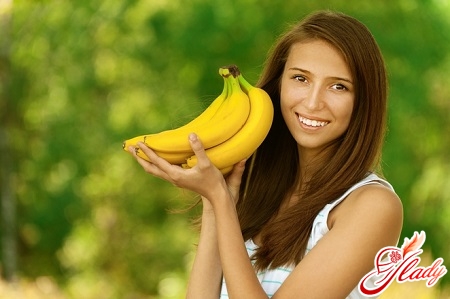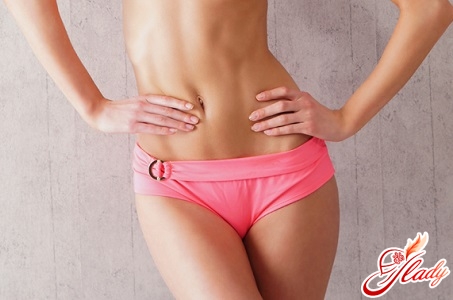 A prolonged winter is a strong stress for the body.We are overcome by fatigue, laziness, drowsiness, bad mood, various diseases cling one after another. All these are sure signs of vitamin deficiency. For example, dryness, peeling, redness of the skin of the face and hands indicate a lack of vitamins A, C, E and group B. Dull hair color, hair loss, brittle nails indicate a lack of vitamins of group B and vitamin C, copper, magnesium, iron. Lack of vitamins B2, B3 and B6 causes frequent dermatitis, and long-term non-healing wounds on the skin indicate a deficiency of vitamins C, D, and K. How to survive until the end of winter? It's very simple - replenish your vitamin reserves! If you think that you have already fulfilled your vitaminization plan for the body during the fruit and berry summer, then you are very much mistaken. Our body is not able, like a camel water, to accumulate vitamins for future use and store them all winter. What vitamins are best to take in winter? What to do - buy a package of synthetic "elixirs of life" that you like at the drugstore, or go to the store for "live" vitamins? In winter, this question is especially relevant, because the main cause of seasonal vitamin deficiency is poor nutrition, that is, an elementary lack of vitamins in food. It is no coincidence that in third world countries, diseases associated with a lack of vitamins still exist - rickets, scurvy, beriberi (lameness) and many others. However, residents of highly developed countries are not immune from vitamin deficiency.
A prolonged winter is a strong stress for the body.We are overcome by fatigue, laziness, drowsiness, bad mood, various diseases cling one after another. All these are sure signs of vitamin deficiency. For example, dryness, peeling, redness of the skin of the face and hands indicate a lack of vitamins A, C, E and group B. Dull hair color, hair loss, brittle nails indicate a lack of vitamins of group B and vitamin C, copper, magnesium, iron. Lack of vitamins B2, B3 and B6 causes frequent dermatitis, and long-term non-healing wounds on the skin indicate a deficiency of vitamins C, D, and K. How to survive until the end of winter? It's very simple - replenish your vitamin reserves! If you think that you have already fulfilled your vitaminization plan for the body during the fruit and berry summer, then you are very much mistaken. Our body is not able, like a camel water, to accumulate vitamins for future use and store them all winter. What vitamins are best to take in winter? What to do - buy a package of synthetic "elixirs of life" that you like at the drugstore, or go to the store for "live" vitamins? In winter, this question is especially relevant, because the main cause of seasonal vitamin deficiency is poor nutrition, that is, an elementary lack of vitamins in food. It is no coincidence that in third world countries, diseases associated with a lack of vitamins still exist - rickets, scurvy, beriberi (lameness) and many others. However, residents of highly developed countries are not immune from vitamin deficiency.
Vitamins on a plate
Responsible for our beauty and well-beingnormal metabolism, which is possible only if the body receives a sufficient amount of the entire complex of vitamins and microelements. Where can you get vitamins in winter? What should you eat to be beautiful? Let's try to figure it out. First, try to adjust your menu. According to statistics, in winter, Russians most often lack vitamin C - ascorbic acid. We can say that this is the most important vitamin. A powerful antioxidant, it plays an important role in metabolism, increases immunity, and forms "happiness hormones." To make up for the lack of healing ascorbic acid, eat more kiwi, oranges, chokeberries, tomatoes, and bell peppers. Don't forget about sauerkraut - it contains much more vitamin C than citrus fruits! In addition to ascorbic acid, in winter we do not get enough B vitamins. As a result, lips dry out and crack, cracks appear in the corners of the mouth, hair and nails become brittle, and eyes water. And also - a person becomes irritable, breaks down on loved ones for no apparent reason, suffers from insomnia. Buckwheat, rice, peas, eggs, fermented milk products, kidneys, liver, heart, nuts, beets will help replenish the body with missing vitamins. Has your vision become worse? You lack vitamin A - retinol, which is responsible for visual acuity, and also strengthens the immune system, participates in maintaining the health of hair and nails. Its sources are milk, eggs, fish, carrots, parsley, dill, sorrel, apricots. Everything falls out of your hands, and there is a rush job at work, you can not concentrate on anything? It's time for you to stock up on vitamin E - tocopherol. Vitamin E is the most powerful natural antioxidant. It maintains immunity, protects cells from damage, slows the formation of free radicals, improves the supply of oxygen to cells, helps to cope with high mental stress, protects the body from nervous breakdowns and stress. Tocopherol is found in spinach, cabbage, lettuce leaves, beef liver, lean meat, eggs, and vegetable oil.
And now - to the pharmacy!
We replenish our supply of vitamins and mineralsshould be taken daily. But, unfortunately, it is very difficult to do this based only on healthy eating. Firstly, it is almost impossible to organize your diet with such a variety of products. Secondly, you cannot be 100% sure that the products still contain useful substances after delivery, long-term storage and heat treatment. Additional intake of vitamin preparations is necessary. Now they are sold in huge quantities in any pharmacy without a prescription, but this does not mean that they should be taken without supervision. It would be wiser if a doctor selects them. Consult with your doctor about which vitamins to take in winter for you. It is believed that the body should receive 2/3 of vitamins with the "right" products and only 1/3 should be replenished with chemicals. It is necessary to pay special attention to the content of vitamins in one tablet in accordance with the daily requirement. If one tablet contains the daily dose, then such a drug should be taken only once every 3 days.
Beauty from jars
Even with a balanced diet and consumptionvitamin and mineral complexes we cannot provide the skin and hair with enough vitamins from the inside. A jar of cream will help to correct the situation. We can talk about the content of a sufficient amount of vitamins in the cream only when the concentration of the active substance is so high that it can "work" with the skin. The favorites of cosmetologists among vitamins are vitamins A, E, C and group B. Vitamin A is responsible for the prevention of aging and is included in most anti-aging lines. Vitamin E has a softening effect, participates in tissue regeneration. The recognized leader in the fight against dark circles under the eyes is vitamin C, it also provides a fresh complexion and protects against free radicals. And vitamins of group B restore the vital functions of cells. Cosmetics that include these vitamins can be found in almost all recognized cosmetic manufacturers. Some useful tips:
- eat right - give up fast food, reduce to a minimum the consumption of sausages, smoked products, animal fats, white refined flour products;
- take vitamin-mineral complexes;
- Movement is life! Walk more in the fresh air, do sports;
- go to bed not later than 22 hours, before ventilating the room;
- quit smoking, give up alcohol;
- keep a good mood.
Crib. Where vitamins live
A (retinol):
- Pumpkin, carrots, sweet peppers, broccoli, spinach, green onions, parsley, soy, peas, apples, grapes, dog rose, sea buckthorn.
- Fish oil, fish caviar, beef liver, milk, sour cream, butter, cheese, cottage cheese, egg yolk.
B1 (thiamine)
- Wholemeal bread, wheat sprouts, unprocessed rice, oatmeal, asparagus, broccoli, Brussels sprouts, peas, nuts.
- Pork, beef, poultry, liver, egg yolk, fish.
B2 (riboflavin)
- Leafy green vegetables, peas, oat and buckwheat groats, embryos and shells of cereals, yeast, bread.
- Meat, liver, kidneys, fish, milk, cheese, cottage cheese, yogurt, egg white.
B5 (pantothenic acid)
- Yeast, hazelnut, green leafy vegetables, cauliflower, buckwheat and oatmeal, peas.
- Chicken meat, liver, kidneys, heart, fish caviar, egg yolk, milk.
B6 (pyridoxine)
- Yeast, green leafy vegetables, potatoes, corn, cabbage, soybeans, legumes, uncooked cereals, wheat and buckwheat groats, rice, carrots, bananas, avocados, walnuts.
- Meat, fish, liver, kidneys, heart, milk, egg yolk.
B9 (folic acid)
- Carrots, green leafy vegetables, legumes, yeast, bran, barley, oat and buckwheat groats, nuts, oranges, bananas, apricots, melon, pumpkin, mushrooms, dates.
- Liver, meat, egg yolk, milk, cheese, fish (salmon, tuna).
B12 (cyanocobalamin)
- Sea kale, soy, yeast.
- Beef, poultry, liver, kidneys, fish, eggs, milk, cheese.
C (ascorbic acid)
- Citrus, kiwi, leafy green vegetables, sorrel,cabbage (broccoli, Brussels, color, cabbage), bell pepper, potatoes baked in a uniform, black currant, chokeberry, sea buckthorn, hips, cranberries.
D (calciferols)
- Egg yolk, fish oil, caviar, butter, cheese and other dairy products.
E (tocopherols)
- Sunflower, linseed, corn and olive oil, nuts (almonds, peanuts), legumes, soybeans, seedlings of cereals, green leafy vegetables. Egg yolk, liver, milk.
H (biotin)
- Soy, beans, peanuts, mushrooms, potatoes, cabbage, lettuce, onions, carrots, tomatoes, beets, spinach, melon, oranges, apples, rice, barley, bran, wheat.
- Meat, beef liver, heart, eggs, milk, cheese, salmon, halibut, herring, tuna
K (phytomenadione)
- Green tomatoes, hips, spinach, Brussels and cauliflower, oats, soybeans, rye, wheat, green tea.
- Pork liver, eggs.
PP (nicotinic acid)
- Carrots, broccoli, corn flour, peanuts, dates, tomatoes, potatoes, whole-grain foods, wheat sprouts.
- Pork, beef liver, fish, eggs, cheese, milk.
We recommend reading:









